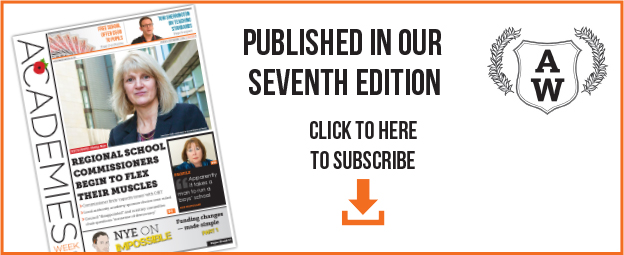UK heads joined school leaders from around the world in Washington to explore ways of developing professional learning and providing effective feedback.
Earlier this week, I was fortunate enough to be among 24 UK headteachers who travelled to Washington DC for the Teacher Development Summit organised by the Sutton Trust and the Bill and Melinda Gates Foundation. Our delegation, pulled together by former headteacher Sir Alasdair Macdonald, included John Tomsett from Huntington in York, Dame Alison Peacock from Wroxham in Potters Bar and Geraldine Davies from the UCL Academy alongside colleagues from Wales, Scotland and Northern Ireland. We were joined by principals and teachers from all over the world including Finland, Singapore, New Zealand, and the US.
The event was designed to generate material for a toolkit that the Sutton Trust and Gates Foundation will create to support schools with improving the quality of teaching, with a specific focus on developing professional learning and providing effective feedback. We were asked to pool ideas that would have value at the practical, operational level (i.e. guiding the way teachers and leaders work to improve practice) and at the level of school culture (i.e. creating the conditions within which the practical tools could succeed).
Ideas about explicitly developing a high-trust culture captured the spirit
To add weight to the proceedings, Professor Rob Coe from Durham University was invited to speak about the Sutton Trust report ‘What Makes Great Teaching?’ This excellent report, published to coincide with the summit, summarises the research evidence around effective classroom practice.
His talk caused quite a stir as he spelt out the difficult truth that some widespread practices among teachers and leaders simply don’t stand up to scrutiny. However, the report also signposts areas where we are more likely to find solutions – for example, triangulating between data from assessment, student feedback, and direct observation.
Over the next year, some of the tools will be trialled in schools before a toolkit of some kind is produced towards the end of 2015. Throughout the summit, we were encouraged to consider two underpinning sets of criteria. Firstly, driven by the overarching Sutton-Gates mission, our tools needed to be portable from one institution and context to another. A strong emphasis was placed on the need to tell a simple, coherent story about each strategy – the why, the what and the how – to facilitate the transfer of effective practice, especially from successful schools to less successful schools. Secondly, the tools need to have the capacity for built-in impact evaluation of student outcomes, and challenge what Coe called the ‘we think we do that already’ trap.
Strategies featured during the summit included audit tools such as the UK’s National Teacher Enquiry Network framework and Australia’s Educational Positioning System, various models of peer observation and coaching, using video for peer and self review, team teaching critical friendship groups, tiered CPD and career structures tailored to individuals (e.g. the Singaporeans were all ‘master teachers’). Other materials included school-generated rubrics or frameworks for teaching (popular in the US), one-to-one parental engagement in baseline primary assessments and supporting teachers to undertake Masters degrees. Altogether these will create an excellent toolkit.
To shape our thinking on day two, we used Daniel Pink’s framework which says that people are more motivated when they have autonomy, a sense of purpose, and
are able to develop ‘mastery’ in their job. This led to some interesting ideas about the vision-building processes needed to support the culture we’d like to see in our schools.
Without doubt, the biggest hit of the summit was the work done on trust by Australian headteacher, Dr Paul Browning. His ideas about explicitly developing a high-trust culture captured the spirit of the whole event.
The UK heads resolved to continue our discussions with the Sutton Trust while the toolkit is developed. This will include making some policy recommendations for government to support schools further in developing their capacity to lead effective teacher development.
For another perspective, take a look at tweets with the hashtag #globaleduchangemakers (oh yes) and John Tomsett’s blog. Sutton Trust will also publish a Summit Report in the next month.
Tom Sherrington is Headteacher of Highbury Grove School in Islington








Your thoughts